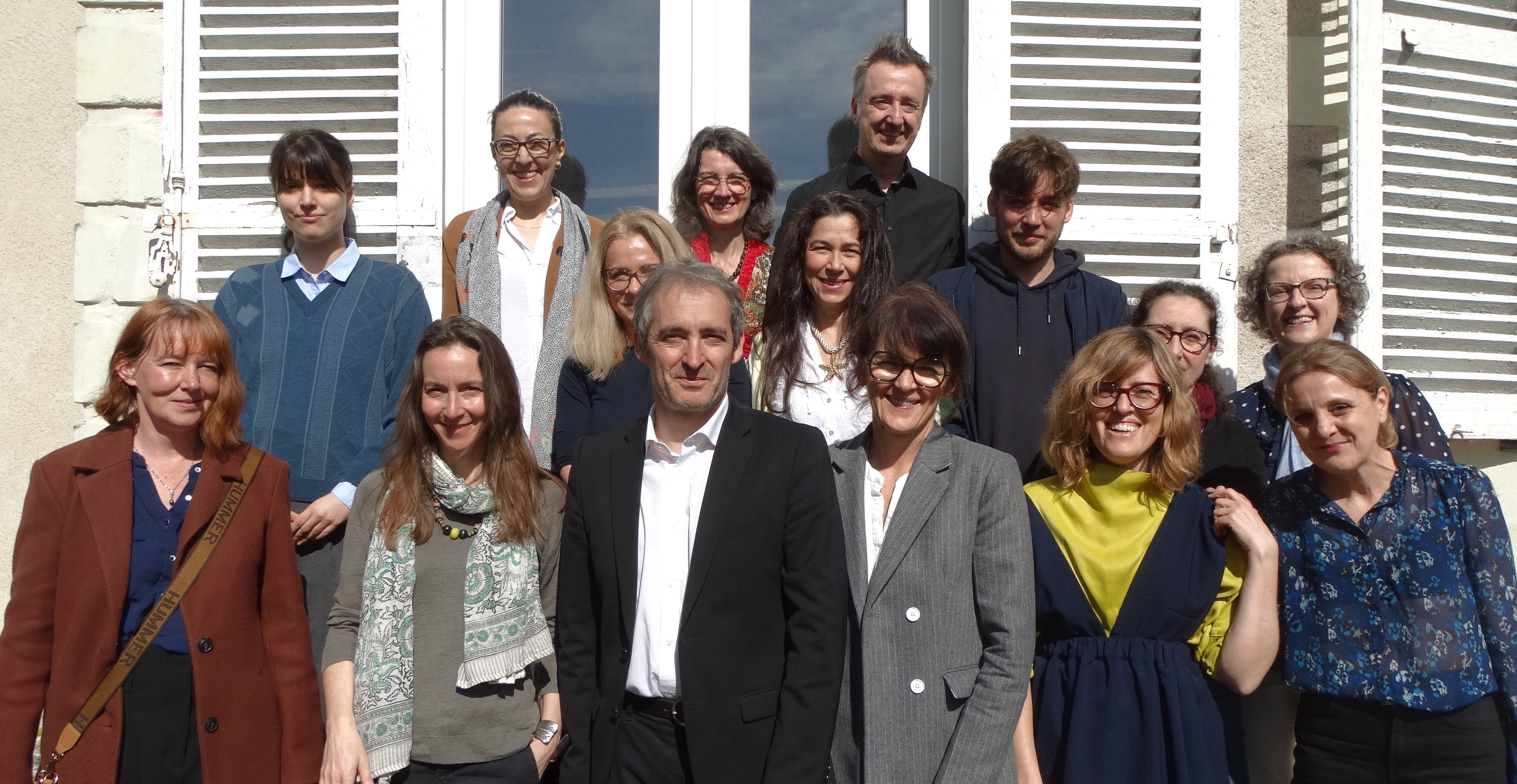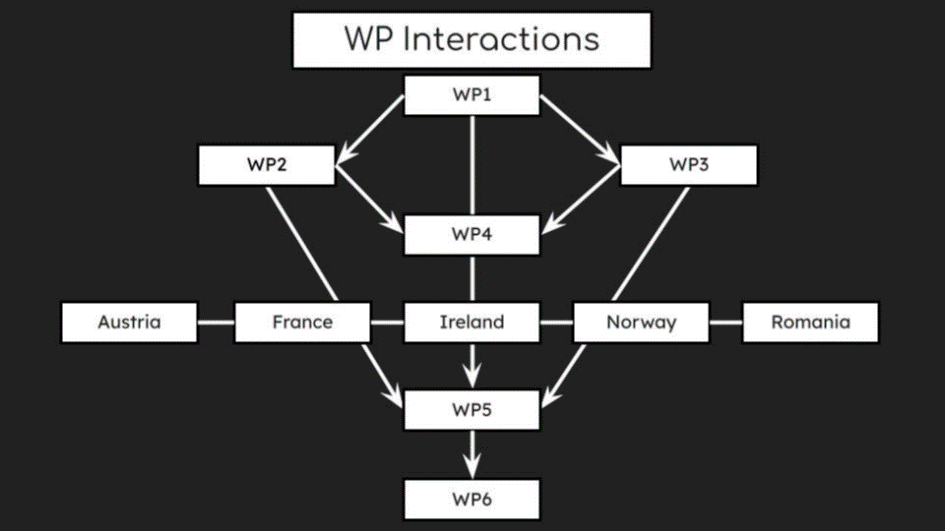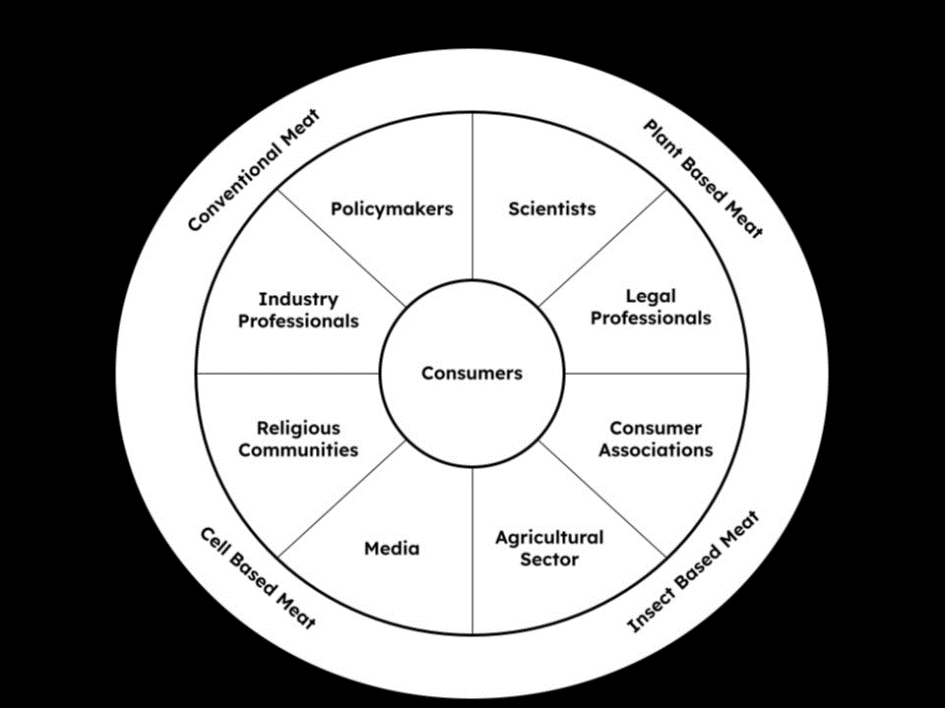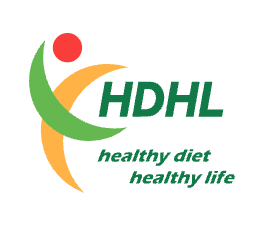- ComMEATted Project -
ComMEATted
Committed to the responsible development of meat replacement products and practices: comparing multidimensional barriers and potentials in European countries [JPI HDHL "FOODRETEC"]
Project
The ComMEATted project, Committed to the responsible development of meat replacement products and practices: comparing multidimensional barriers and potentials in European countries [JPI HDHL "FOODRETEC"], winner of the FOODRETEC/JPI HDHL 2023 call for proposals, officially commences today for a duration of 36 months. It will examine, from an interdisciplinary perspective and across 5 countries (France, Ireland, Norway, Austria, Romania), how a dietary transition towards reduced meat consumption (potentially relying on the consumption of plant proteins, insects, and synthetic meat) can be possible and under what conditions.
Funded by national research agencies, ComMEATted, led by DCS, involves around twenty colleagues.

European research project launched!
Facilitating the transition to sustainable protein consumption:
Traditional eating habits and cultural norms vary widely across Europe, creating a complex landscape for the introduction of alternative proteins. To address this complexity, the project adopts an innovative approach that considers various contextual factors, including social, cultural, regulatory, economic, psychological, ethical, religious and ideological dimensions. ComMEATted ensures active involvement of a diverse range of stakeholders (e.g., consumers, policymakers, NGOs, industry, and media representatives) throughout the research process. This collaborative approach to knowledge creation offers valuable insights into the challenges and opportunities associated with transitioning to alternative proteins.
Elisabeth Lambert (PI), CNRS Research Professor, Nantes/DCS.
Project
Project Summary: This project aims at answering the following question: Under which conditions are European consumers and stakeholders in five national contexts (Austria, France, Ireland, Norway and Romania) ready to opt for diets that include alternative proteins (cell-based, plant-based and insect-based meat)? It thus ambitions to build knowledge to facilitate a transition towards the responsible production, provision and consumption of novel meat replacements in Europe. Our project innovates by considering consumer choices in context: social, cultural, regulatory, economic, psychological and ethical, religious or ideological grounds because of complex food practices in Europe. Our objective is to thereby map a range of levers that may facilitate a transition to producing, making, selling, cooking and eating healthy alternative proteins in Europe. This proposal includes exploratory research engaging end-users: consumers but also all stakeholders in the food system. It also aims at building more knowledge on narratives and discourses around meat-alternatives promoted by stakeholders in various national contexts (the food Industry, the agricultural sector, consumers’ associations, scientists, religious and ethical communities, the Media), on the domestic and EU regulatory governance, on labelling as well as on consumers’ attitudes towards novel foods (considering their current food regime, trust in institutions and innovations, beliefs and values, psychological and other determinants). By offering a comparison between national contexts, it will better inform national and European stakeholders, in particular policy-makers. The consortium’s strength results from a strong and pluridisciplinary collaboration between partners from the five national contexts with socio-professional actors sitting on an advisory board.


- ComMEATted Project -


elisabeth.lambert@cnrs.fr
Webmaster:
katia.barragan@univ-nantes.fr



